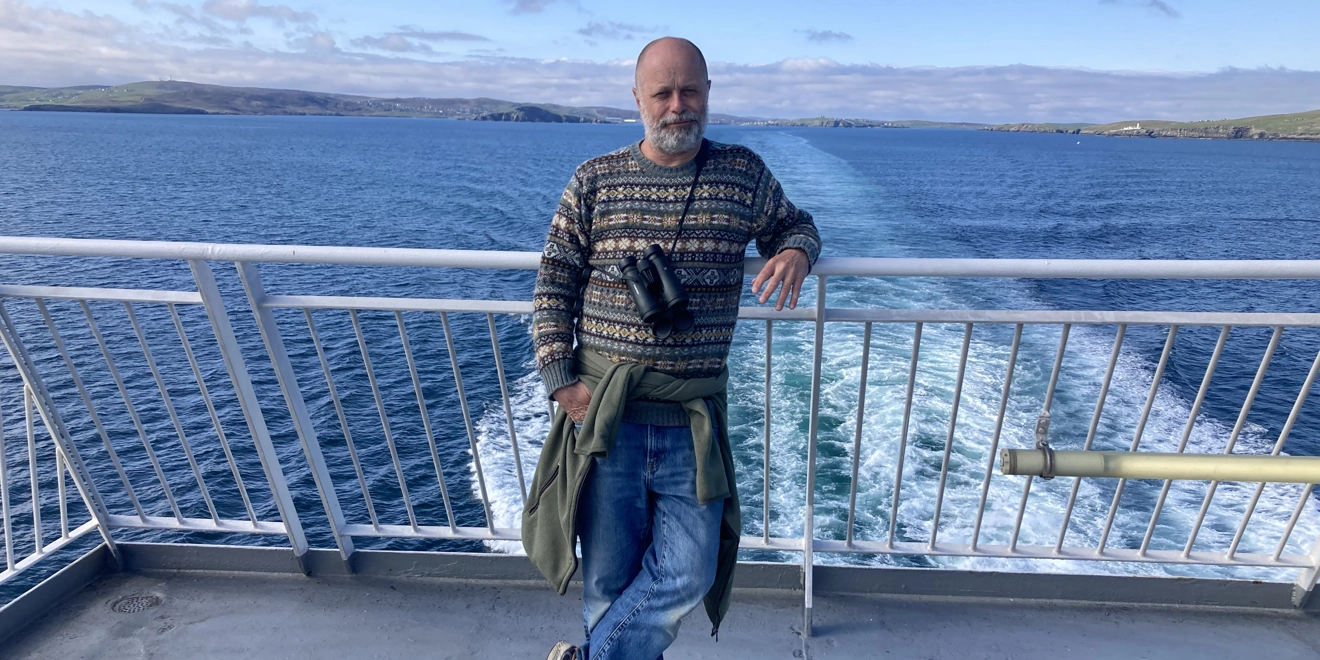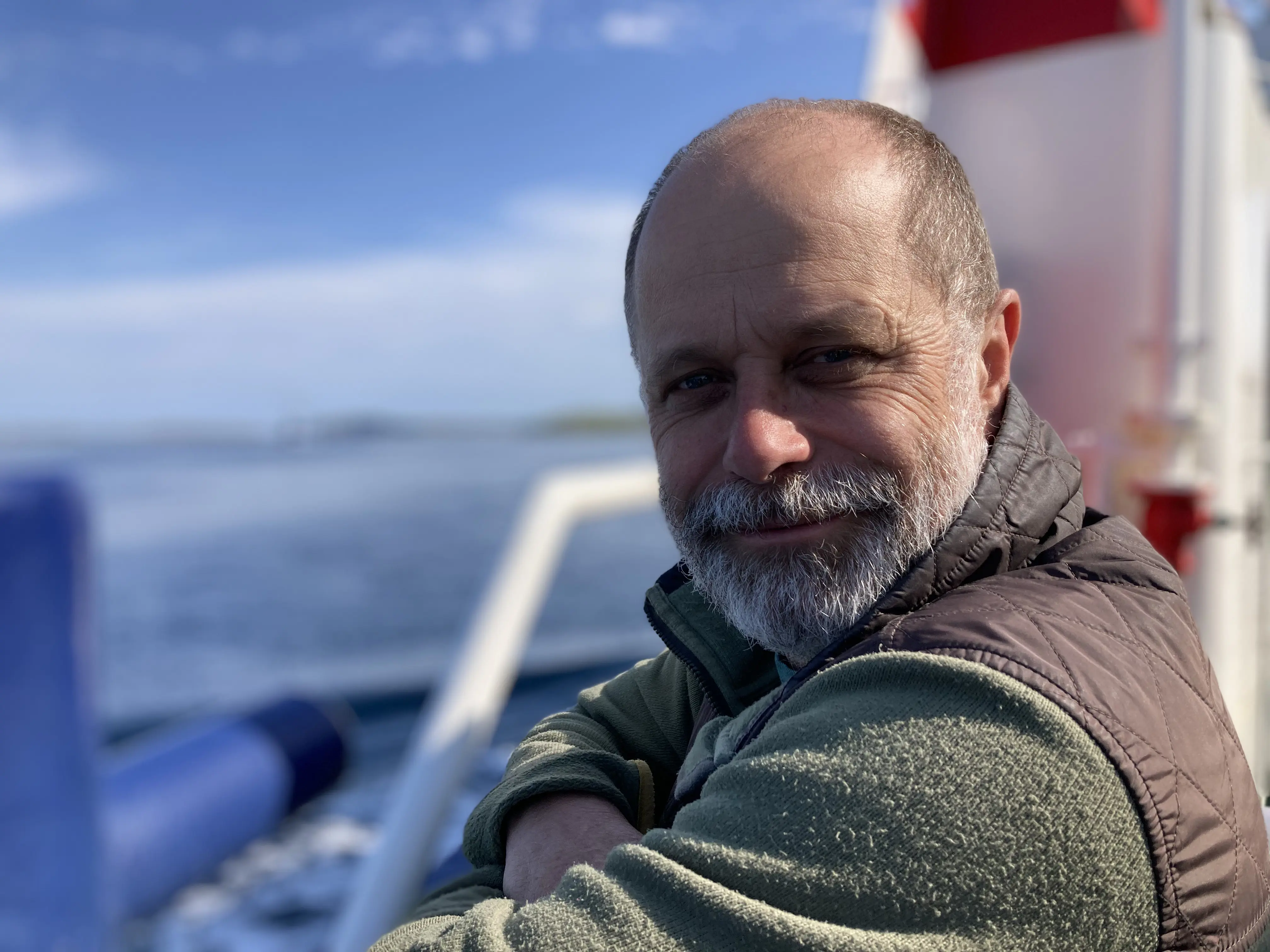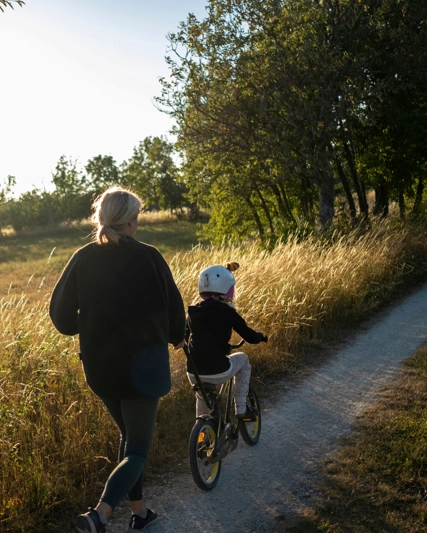Stephen, 59, is a patient with asthma and chronic rhinosinusitis with nasal polyps (CRSwNP) who spent years suffering frequent attacks. Here, he explains how he worked with healthcare professionals to access a biologic treatment that he feels has given him his life back – and the energy to keep up with his young children.
I've had chronic rhinosinusitis for as long as I can remember. I’ve always had difficulty breathing through my nose, but it got so much worse over the years.
I first became aware that I might have asthma in my mid-30s, and over time developed nasal polyps – an inflammation and growth of the nasal lining that can completely block the airways. I had no idea these conditions were connected and often associated with more severe asthma symptoms.
The condition, called chronic rhinosinusitis with nasal polyps (CRSwNP), affects up to 4% of the general population.
As well as nasal obstruction, people with CRSwNP experience symptoms such as loss of smell, facial pressure, sleep disturbance, infections and nasal discharge that can significantly affect their emotional and physical wellbeing. I don’t think people realise the impact – it’s so much more than a ‘blocked nose’.
I got to the point where I couldn't breathe through my nose at all and was breathing through my mouth all the time.
I would wake up in the middle of the night in a panic, not being able to breathe. I'd walk around the house for hours, make cups of tea, and eventually pluck up the courage to go back to bed. Sometimes I’d end up sleeping sitting up because I was afraid of lying down.
And it wasn't just the nighttime symptoms that were troubling me. I was having worrying symptoms during the day as well: wheeziness; difficulty doing everyday activities like climbing the stairs. I've got quite young children who are very active, and I wasn't able to keep up with them, which was heartbreaking. I was just getting worse and worse.
It took me longer than it should have to go and see my doctor. I think I was in denial. I just didn’t want the disease to escalate, so I tried to ignore it. But eventually, I made an appointment.
I was diagnosed with asthma and put on my initial treatment – an inhaled corticosteroid and a long-acting bronchodilator, which is an inhaled medicine that relaxes the muscles around your airways to help keep them open.
At my lowest ebb, when my asthma was really at its worst, I was also taking around five or six courses of oral corticosteroids (OCS) a year. I might have a week or two off them, but as soon as I tapered off them, I’d start another course, and that really concerned me.
As a medical science professional, I was aware of the dangers of OCS. While they may temporarily improve symptoms, OCS are widely recognised to cause adverse short- and long-term effects, some of which are severe – for example, diabetes, increased risk of cardiovascular disease and osteoporosis. As such, long term and frequent use is discouraged.
I don’t think many people realise this. They just want relief from the symptoms, as I did. You just want to be able to breathe. But OCS are a short-term fix and an indicator that more can be done. I was taking these medicines almost all the time. Now I’d be concerned if I had to take one course.
When I found out that I was going to be moved on to a biologic treatment, I felt so grateful. I knew how well these medicines worked, and it felt like a big step in my journey with asthma and CRSwNP.

In general terms, these treatments, called biologics, have been developed to target the underlying drivers of disease, often binding to very specific cells or proteins to interrupt the pathway that is causing the symptoms.
Being on these treatments has made a huge difference to my life. I'm having far fewer exacerbations. I'm not taking OCS and, right now, I feel like I haven't got asthma.
Looking back to when my asthma was at its worst, I couldn't imagine going out and doing the things I love doing with my kids: climbing; walking; enjoying the outdoors. It was just something that wasn't possible for me. Now, that's all possible again. I can get back to living a normal, fulfilled life with my family.
However, navigating the healthcare system to make sure I got the biologic treatment I needed was a complicated process.
I know there are many patients out there in a similar position to the one I was in, thinking: “I'm not on the right medicine now.” Or worse: people who think there are no other options, and they just have to live without being able to breathe properly.
Respiratory medicine has evolved, and there is no reason to go on suffering in silence.
My advice would be to make sure your clinicians are aware of how bad your asthma is, and how many exacerbations you’re having.
I know how difficult it is to keep advocating for yourself when you’re sick and low on energy, but it is so important. Educate yourself about your condition so you’re in a good position when you go and see your doctor.
You can say: “I'm taking this drug. I'm taking it every day. I'm not missing any days, but I'm still getting all these symptoms. Is there something else I can do?”
It's about working together.
My hope is that access to these medicines will improve. And that's going to happen when patients feel empowered to seek help, and healthcare professionals remain committed to finding the most effective personalised treatments for them.






